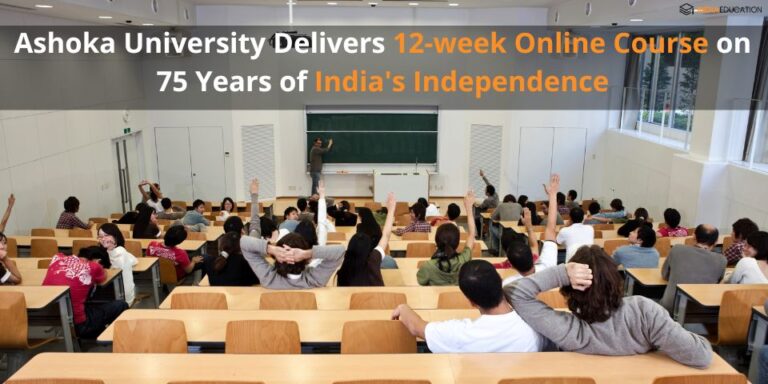
Ashoka University Delivers 12-week Online Course on 75 Years of India's Independence

Vishakha Singh
If you’re interested in history and want to learn more about India’s past, Ashoka University is the perfect place for you. The course offers a comprehensive overview of the country’s history, from its ancient origins to modern times. You’ll come away with a greater understanding of India’s culture and its place in the world.

Ashoka University will be offering a course celebrating 75 years of India’s independence as part of its online diploma program. The 12-week course will be divided into 12 parts, starting on September 17 and ending on December 25.
This course is for anyone interested in learning about India’s history and culture. Each session will last for two to four hours, and the course fee is Rs 50,000 (excluding GST).
Ashoka University has announced that its new live learning courses will provide students with direct interaction with faculty, access to a readings list, and engagement and support. The courses will be taught by faculty from a range of disciplines, according to the university’s press release.
“The politics of India’s foundation shaped what the country became. India’s trajectory including social, economical, and cultural aspects can tell us about the country today. After 75 years as a nation, what hopes, fears and progress can Indians look forward to? This multidisciplinary program will look at all these questions and more, giving learners a comprehensive, analytical overview of India since independence,” said the university.
The faculty at Ashoka University will be covering the story of India over the past 75 years, with experts like Prof Rudrangshu Mukherjee, Chancellor, and Professor of History, DPhil from Oxford University, Arvind Panagariya, first VC of Niti Aayog, Shivshankar Menon, National Security Adviser 2010-2014), Rita Kothari, professor of English and Director of the MA in English Programme at Gujarat University, Madhavi Menon, professor of English at Ashoka University), and Sunil Khilnani, a renowned scholar of politics and history.
They will address the foundational politics and its subsequent social, economic, and cultural trajectory that shaped the country and the hopes, fears, and progress that Indians can look forward to.
Latest News
People Reading Now

CBSE Compartment Result 2023 OUT: Click For Direct Link



CSAB 2023: Special Round Registration Begins Today

